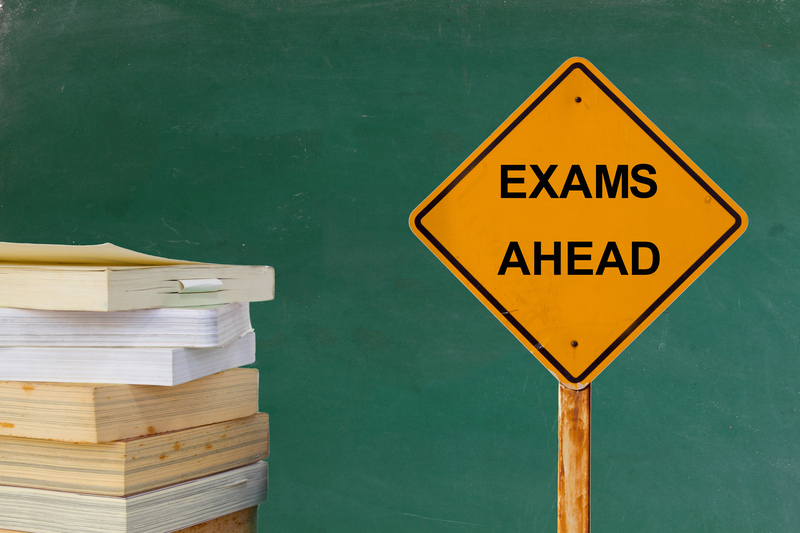Find out more about The Open University’s Childhood and Youth Studies qualification.

EHE students have to pay in full and sit exams as private candidates, organising their own exams with willing exam centres; at a school, college or independent exam centre, often not local. With Teacher Assessed Grades (TAG), the teacher completing their assessment/timed mock-exam-style assessments had to be registered with the exam centre.
EHE students in this study reported that their biggest concerns were that traditional school teachers would not understand or recognise their individual approaches and preferences to learning and setting their own work schedules.
My research findings were based on interviews with 12 young people aged between 14-19 years old, originally due to sit exams in Summer 2021. I interviewed the students six weeks before the new teacher assessments were due in May. I completed a parent survey alongside the interviews which received over 400 participants.
It showed EHE students typically had an informal approach to studying and preparing for exams and are self-taught.
In the interviews, students reported completing less writing activity than one might typically expect if at a school, instead using more conversation and practical based learning with an emphasis on past papers, which helped them learn, analyse and understand exam technique, marking and timings.
This more relaxed or informal approach was part of the reason that the system that replaced exams with TAG in 2021 did not work for EHE private candidates. Quite simply, they had no history with teachers marking their work as students learnt independently using books, their own research, YouTube, past papers and family or friends to support their learning.
Teaching myself
When we think of young people taking exams we usually think of them working with a teacher, structured lessons and being guided through the curriculum material in a weekly or regular manner. The significant majority of EHE students were self-taught when studying for their exams (Graph 1). A total of 379 responses were recorded for this question from 401 participants, 38.78% reported self-taught with no teacher or tutor, and a further 16.6% were mostly self-taught with an occasional private tutor. A smaller proportion of students used online or distance courses (13.19%) and 8.17% used a regular private tutor for some subjects.
Most people would look at my way
of working and study and would not get it, I do my own thing and it works for
me, but a teacher would not necessarily recognise it as learning, it doesn’t
look like anything you do in school. But it makes sense to me. - Young
person F
To understand the differences in pedagogical approaches to learning, particularly when looking at exam subjects, it was interesting to see how EHE students had different approaches to school-based exam preparation but similar approaches to each other. Their starting point was typically the exam syllabus and looking at past papers. EHE students would utilise YouTube videos and rely heavily on conversation-based learning methods with some reading of textbooks but most reported very few written elements in their preparation. Any gaps in their knowledge they looked up the answer. “I don’t do the activities or exercises in the book” (young person G), “I only do my own notes, most people wouldn’t understand them” (young person F). This oral, learning by rote element was most noticeable in students who had been EHE before the pandemic. Eleven of the twelve EHE students interviewed thought exams were the fairest way to test knowledge and gain qualifications, and were the least biased way of assessing subject knowledge, offering a clear indication of their ability to progress to college or university.
 Graph 1: Young person's usual way of working towards exams before the announcement that exams were cancelled.
Graph 1: Young person's usual way of working towards exams before the announcement that exams were cancelled.
Choice and personalisation
Home-educated young people valued having a choice in what they studied and were confident in their own knowledge. They were not reliant on a high grade in the subject to feel their knowledge was validated and in interviews expressed that they felt exam knowledge was narrow compared to the whole field on that topic and so were unfazed by the prospect of a lower grade in exams. Exams were a resource to be used to enter into higher education or training. Parents were clear they wanted to ensure a balance between exam study and other activities and classes their young people regularly did to give what they often describe as a ‘healthy life-work balance'.
Most people who don't home ed just don’t understand how it works. For us it was definitely not like school, it was about finding your passion, figuring out what choices/interests our children wanted for themselves – de-schooling, so not sitting doing work every day at certain times. Being allowed to not do anything academic if that was needed at that point in time. Most educational professionals from the school system just don't get it. - Participant IDAA003EHE students interviewed discussed two motives for doing the exams; one, on a needs basis, like maths or English for progression onto college or university or two, on an interest basis, if they had an interest in the subject outside of the exam.
They don't necessarily work in the same way as schools a lot of kids don't write stuff down and there you know audio learners or kinaesthetic learners. - Young person TEHE students’ unstructured and non-linear, self-taught approach to learning and preparing for exams proved at odds with Formal Structural Approach of TAG. EHE students tend to learn or take exams when they are ready.
From this research into home education, I have understood that home-educated young people often view home education as a way to personalise and individualise their education, parents tended to view home education as young person-led and described themselves as ‘facilitators’ not teachers. Further research on this underrepresented community is needed to understand the wider experiences of the different communities within home education.
Research carried out/funded by the Centre for Social Mobility at the University of Exeter.
Learn more about home-schooling children...
-
Elective Home Education Hub
Learn more to access more details of Elective Home Education HubA collection of free resources from The Open University - articles, videos, audio and courses tailored to support home educators, home-educated young people, and other stakeholders.

Collection
-
Children’s perspectives on play
Learn more to access more details of Children’s perspectives on playIn this free course, Children's perspectives on play, you are asked to put yourself in the place of young children and to think about their view of play and their reasons for playing. When children have personal freedom to choose and make decisions about what and who they want to play with, as well as where they want to play, they are highly ...

Free course
5 hours
Level: 1 Introductory
-
Introduction to child psychology
Learn more to access more details of Introduction to child psychologyChildhood is a time of rapid growth and development, and studying these changes is endlessly stimulating. In this free course, Introduction to child psychology, you will be introduced to the discipline of child psychology and some of the key questions that guide the understanding of childhood. These questions include 'What influences children's...

Free course
8 hours
Level: 1 Introductory
-
Supporting children's development
Learn more to access more details of Supporting children's developmentSupporting children’s development is an introductory course for anyone who is interested in children’s development, especially support staff in schools, such as teaching assistants. It builds on your knowledge and skills to develop a deeper understanding of children from the early years to school leavers. You will be introduced to some core ...

Free course
15 hours
Level: 1 Introductory
Articles in this collection...
-
Home education collection
Read now to access more details of Home education collectionThis collection of articles is intended to support the educational and professional practices of groups of practitioners, learners, researchers, and policymakers who have a shared interest in the topic of home education, or elective home education within the UK and beyond.

Article
Level: 1 Introductory
-
Home education as a provocation for the future of education
Read now to access more details of Home education as a provocation for the future of educationUNESCO’s 2021 report ‘Reimagining our futures together: A new social contract for education’ sets out an invitation to all education stakeholders to participate in policy discussion, research and innovation to transform education.

Article
Level: 1 Introductory
-
How home educators access exams
Read now to access more details of How home educators access examsThere are an estimated 80.000 children home-educated in England. No accurate data is available on how many of these children sit national examinations each year. However, a study during the Covid pandemic shed light on challenges when the exams were cancelled, and some significant inequalities came to light.

Article
Level: 1 Introductory
-
A guide to developing trust with home-educating parents
Read now to access more details of A guide to developing trust with home-educating parentsAs the population of home-educating families continues to grow, how can professionals improve how they work with parents who may have had a negative experience of previous local authority support?

Article
Level: 1 Introductory
-
Transitioning from home education to employment
Read now to access more details of Transitioning from home education to employmentUnderstanding the experiences of previously home-educated adults.

Article
Level: 1 Introductory
-
Home education for children with special educational needs
Read now to access more details of Home education for children with special educational needsAs a specialist teacher and volunteer with a local autism charity, I had contact with families who had deregistered from school reluctantly, or who considered their children had been ‘off-rolled’.

Article
Level: 1 Introductory
-
We learn, together: exploring familial learning in home education
Read now to access more details of We learn, together: exploring familial learning in home educationThere has been continuing annual growth in the number of children and young people being home-educated across the UK.

Article
Level: 1 Introductory
Rate and Review
Rate this article
Review this article
Log into OpenLearn to leave reviews and join in the conversation.
Article reviews